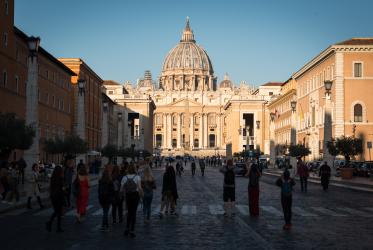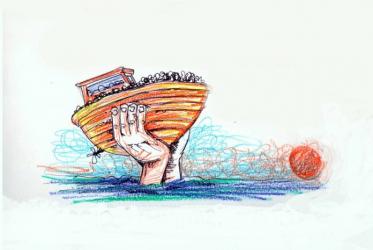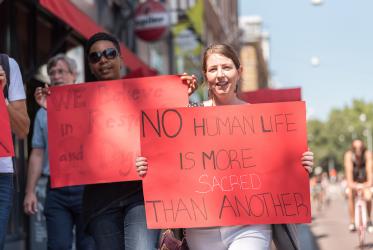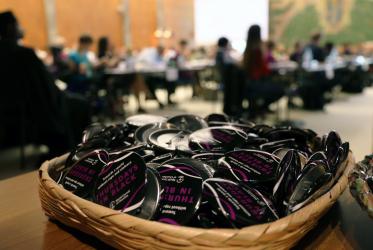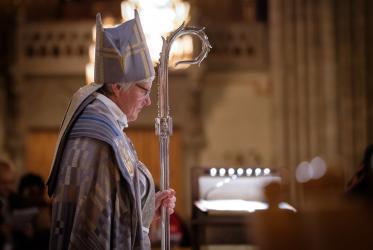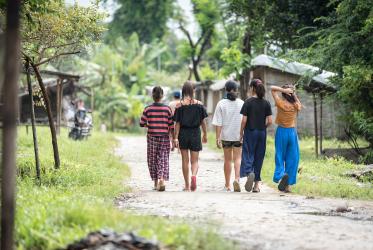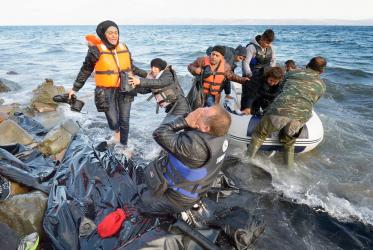Displaying 1 - 20 of 59
Markus Imhoof film receives human rights award
10 October 2019
WCC well-represented in Religions for Peace leadership
07 October 2019
Pope Francis expresses “fraternal closeness” with Waldensian Methodist
09 September 2019
‘European humanitarian corridor’ proposed
02 May 2019
Mediterranean Hope: “On land, at sea and In the skies…”
20 December 2018
Christian communicators work to counter hate speech against refugees
10 December 2018
Tveit: “What does mutual accountability mean?”
15 November 2018
WCC executive committee tackles public issues
07 November 2018
WCC supports UN petition from French Polynesia
07 November 2018
Gender justice an important facet of ACT Assembly
29 October 2018
Archbishop Antje Jackelén opens ACT Assembly in Uppsala
29 October 2018
Children on the Move forum gathers in Rome
16 October 2018
#WCC70: Nathan Söderblom, ecumenical pioneer
29 August 2018
Broken glass of hope grown out of rubble
16 July 2018
